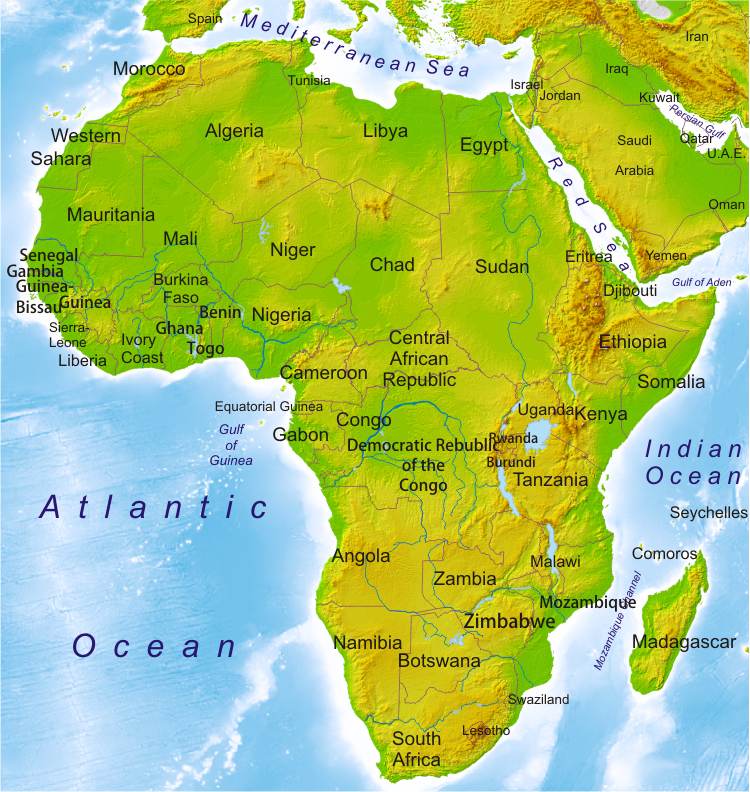Matthew Buys, ORCID’s Regional Director for Europe, Middle East, & Africa, talks about recent developments and upcoming projects in the Middle East and Africa.
Could you begin by introducing some of the challenges of name disambiguation in Africa and the Middle East?
There are three reasons why ORCID is particularly important in Africa and the Middle East: name ambiguity, lack of visibility in a global context, and multi-language publishing.
Not only are there a lot of common names in Africa, but people may use different naming conventions depending on where they publish. And in the Middle East many researchers publish in both English and Arabic, with the same name expressed in two different alphabets. There are also different naming conventions regarding surnames and nicknames. These all create challenges for identifying and connecting researchers to their contributions. It’s not surprising, then, that, in our 2015 community survey, African respondents viewed ‘‘mistaken attribution’ is the most important reason to register for an ORCID iD (84% compared with 69% across all other regions).
Text-based searches or algorithms cannot reliably identify the individual and their associated professional activities – only persistent identifiers can do this.
Interest in ORCID in this region varies a lot. In East Africa the focus is primarily on ORCID for researchers, and the way it creates visibility for them. By having articles connected to their ORCID iD, and by having the ORCID iD connected to other systems globally, researchers get increased visibility for their work and a better digital presence.
In Southern Africa and the Middle East it’s more about interoperability and connections with other systems. Southern Africa, in particular, has a developed research infrastructure in terms of research information management systems, institutional repositories, and a national funding system.
Overall, the key benefits of ORCID for our users and members in the region are the increased visibility for researchers and the trusted digital presence that connects research information across systems. Researchers get a credible online presence, spend less time reporting, and research administrators can use ORCID to keep up-to-date on the professional activities of their researchers.
What were ORCID’s key successes in the region last year?
Compared with the early 2016, there’s now a much better understanding of what ORCID is all about. Crossref was already well known in the region as the persistent ID for content, and ORCID is now equally well known as the persistent ID for individuals. In 2016 traffic to the ORCID registry from MEA doubled, so it’s not just that more people have heard of us, they are also registering for and using an iD.
Hundreds of journals in Africa use Open Journal Systems (OJS), so a key development in 2016 was their improved integration of ORCID. Critically, OJS is now authenticating ORCID iDs, which improves the user experience of connecting their ORCID iD and creates trust in the metadata. The connection of our two systems is really important in this region.
One of the biggest challenges for members in the Middle East & Africa is actually building their ORCID integration. When we discuss membership, everyone can see the use cases, the benefits, and the cost-benefit; the difficulty is to find the skill set and the time within the institution to make the integration happen. IT support departments in African universities are overstretched so it can take a while, even when ORCID integration is a priority. Which brings us to 2017.
So what are your plans for 2017?
It’s important to remember that the public API is of huge benefit to African institutions, as is the fact that the service is free to researchers. ORCID is a non-profit mission-driven community initiative. It is our mission to work together with the community to build an open research infrastructure.
There are really positive discussions happening at both a national and local level. I’m particularly excited about developments in South Africa, Egypt, Saudi Arabia, and the UAE, including some movements toward a national consortium approach to ORCID adoption and integration. This enables institutions to collaborate on integration, including appointing a dedicated support person to help with the integrations for all consortium members. That will make a huge difference to bandwidth and help members in the region get up and running with their ORCID integration. It’s going to be an exciting year!

